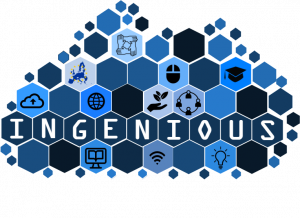Intellectual Output 1: Innovative Methodology for assessing VET Educators’ digital skills
Digital literacy among VET educators in Europe presents great diversity constituting a crucial obstacle in the direction of training and retraining educators, as unified training programs cannot substantially be useful in accomplishing digital literacy.
Personalized training programs are the solution, which means that first and foremost, we should have at our disposal information regarding the level of existing digital skills an educator acquires. In this direction, it is imperative to construct an assessment tool.
To begin with, an exhaustive research on the existing frameworks for assessing the digital competencies was conducted. After considering the special needs of VET educators, the consortium jointly set up and established a framework for assessing the digital skills of VET educators, integrating and adopting guidelines of relevant frameworks. The whole teaching procedure is benefited from a concrete assessment too, which:
- Functions as a statistical tool for measuring the depth and extent of digital penetration in Vocational Education.
- Useful information can be derived regarding the inequalities and imbalances of digital tools’ use in Europe (social and educational exclusion due to gender, race, disabilities, etc., economic status, a region’s infrastructure constraints).
- Collected in a comprehensive way the shortage in specific digital skills; therefore, it could operate as a tool for investigating the current needs of education providers and educators, and consequently set up a medium – long-term targeted plan for retraining them.
- Promotes lifelong and continuous education, as it could function as a reference point for self-assessment that results in seeking mentoring for acquiring particular digital skills and thus supporting effective professional development at an individual and institutional level.
The build of an online questionnaire (expressed in the native language of every stakeholder) that has its foundations on the established framework was implemented within IO1. The ultimate goal is to categorize each educator questioned in a specific level of digital skills acquisition along with different proficiency levels with a cumulative progression. Lower levels will describe educators that have started to use technology in some areas and are aware of the potential of digital technologies to enhance pedagogical and professional practice.
Those that are categorized at an intermediate level already integrate digital technologies in a variety of ways and contexts. Finally, at the highest levels, educators are able to share their expertise with peers, experiment with innovative complex technologies, and develop new pedagogical approaches and assessment strategies. The description of levels for each competence was created to help educators to reflect and understand their personal strengths and weaknesses and moreover provide the retraining institutions with a useful frame to develop a personalized curriculum that serves an individual’s digital needs.
The above-mentioned questionnaire -modified in every country’s case- was distributed to VET educators from all participating countries, with the support of VET providers, to answer it in order to extract meaningful information and evaluate the results after conducting qualitative and quantitative statistical analysis. The outcomes of this stage are used as an input for the next IO. The deliverables that came from the questionnaire analysis include:
- 5 National Reports, created by all participating countries based on their questionnaire results
- 1 General overall report, prepared by TSI, the leading partner of IO1


